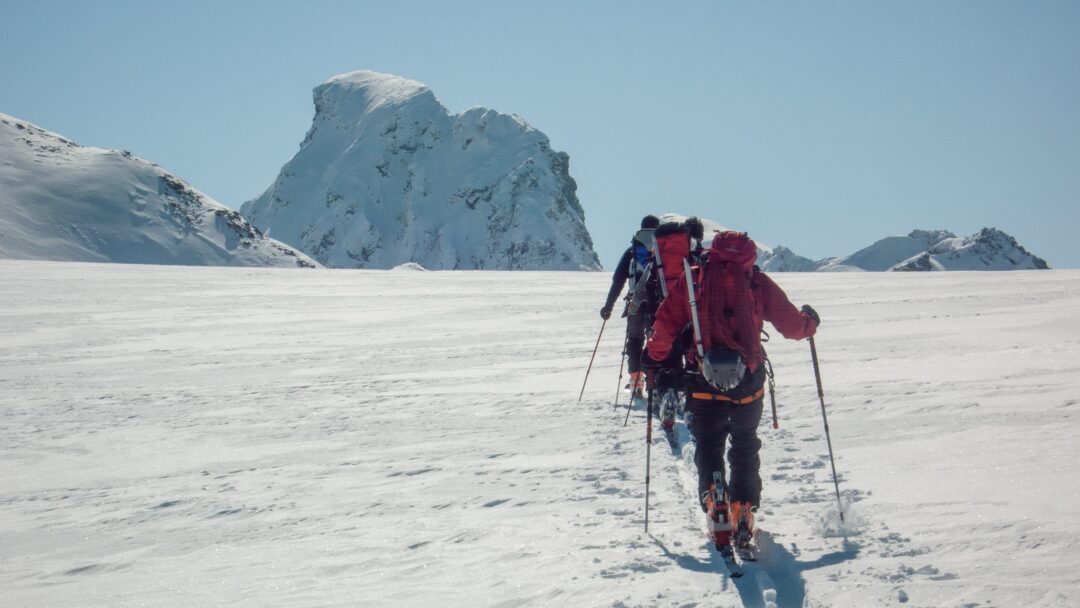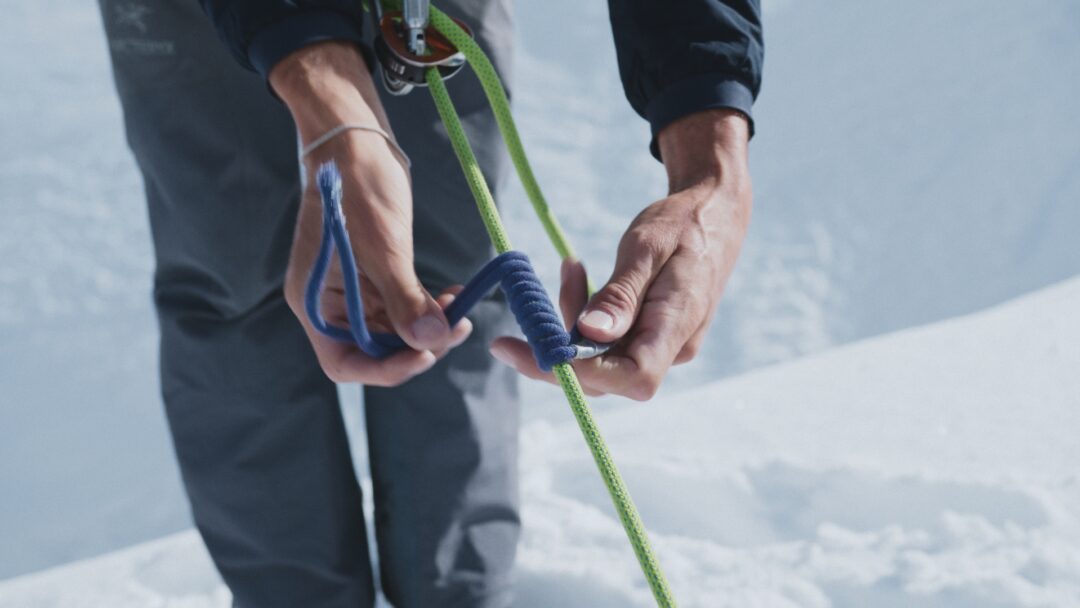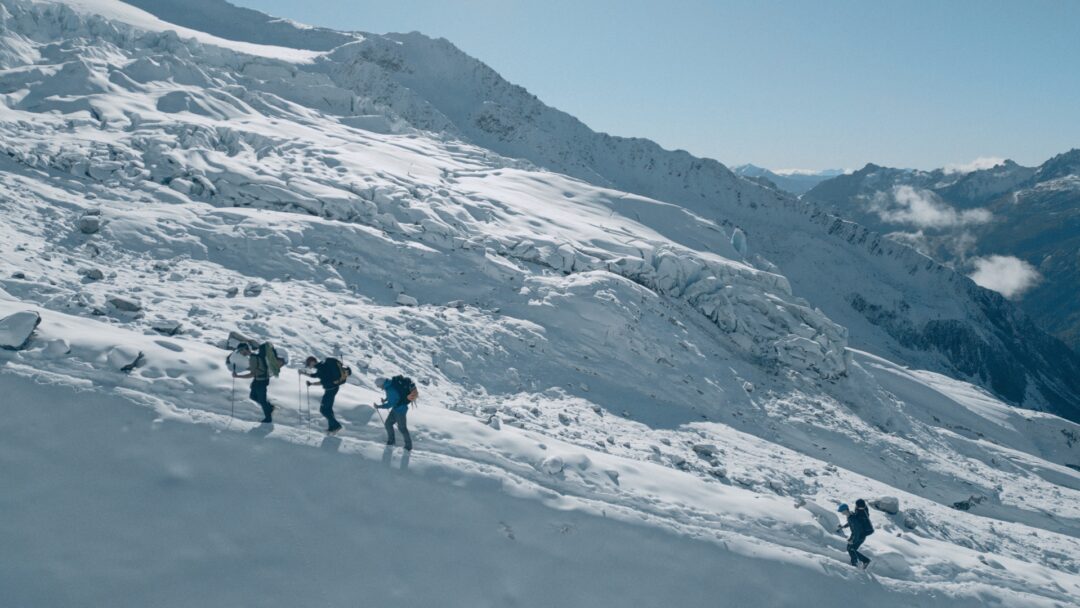There’s something magnetic about the mountains – their vastness, silence, and majesty. For many, though, the sight of a soaring peak also poses a tempting challenge. The Alps represent the ultimate mountaineering playground: they’re accessible, dramatic, and rich in history. But if you’re dreaming of your first summit, or you’re a novice looking for a new challenge, improving your mountaineering skills is essential.
At Adventure Base, we know what it takes to go from curious beginner to confident climber. We’ve helped adventurers of all kinds reach new heights on our Alps peak summit tours. In this guide, we’ll walk you through the key areas to focus on when it comes to levelling up your skills, from fitness and technical training to mindset and mountain safety.
If you’re wondering how to improve your mountaineering skills, especially with your sights set on mountain climbing in the Alps, you’re in the right place. Scroll down to get started! And if you have any questions for us as we go, please don’t hesitate to get in touch.
Guided Climbs in the Alps Require a Solid Fitness Foundation
Before you even set foot on a glacier or scramble up a ridge, your body needs to be ready. Mountaineering isn’t just a walk in the hills – it demands stamina, strength, and resilience. Building a solid fitness base is one of the most effective ways of improving your mountaineering skills, and it’s especially crucial in high-altitude environments like the Alps.
Start with cardiovascular training that mimics what you’ll face in the mountains: hill walks, stair climbs, and trail running are excellent choices. Strength training is just as important – focus on your legs, core, and lower back. You’ll be carrying a pack for hours on uneven ground, often at altitude, so your body needs to be conditioned accordingly.
For general pre-climb guidance to get you started, read through our Training Advice guide. It offers valuable insights into the kind of fitness training you may need to undertake. However, not all climbs are equal, which is why we break our ascents down into levels A to E, with A being the easiest and E being the hardest. With this in mind, we provide more detailed training advice for people booked onto individual climbs. These programs are tailored specifically to the adventure at hand, so you arrive feeling strong and ready to take on the challenge.
If you’re especially keen on trail running, don’t miss our intro to trail running FAQs.

Learn Basic Technical Skills Before Your Climb in the Alps
As a beginner, it’s tempting to think you’ll “pick it up as you go” – but when it comes to mountaineering, technical skills can mean the difference between a successful climb and a dangerous situation.
Essential techniques include using crampons and an ice axe correctly, tying secure knots, ropework for glacier travel, ice climbing, crevasse rescue, and plenty more. These skills are fundamental and form the backbone of safe and efficient movement in alpine terrain.
The best way to learn? Through hands-on instruction. Our Chamonix: Winter Alpine Skills (October and November) and Chamonix: Ice Climbing Intro (January) courses are designed for people taking their first steps in the mountains. Taught by experienced IFMGA guides, you’ll learn essential skills in a controlled environment, with expert feedback that builds confidence and competence.
And most importantly, everything takes place in a high mountain environment. There’s simply no substitute for the real thing!

Gain Practical Experience Climbing in the Alps
Books, videos, and gym time are useful – but nothing beats practical, hands-on experience. The more time you spend in the mountains, the more natural the environment will feel. You’ll get used to moving in technical terrain, adjusting to weather changes, managing your pace, and navigating mixed ground.
We recommend starting with accessible climbs and guided experiences, where you can focus on learning without too much additional pressure. Our Climb Triglav experience is rated Level A for difficulty, making it a fantastic starting point in the stunning Julian Alps. Elsewhere, climbing Gran Paradiso or completing the Monte Rosa Spaghetti Tour both represent a small step up to Level B.
At 4,061m, a route like Gran Paradiso is a perfect stepping stone. It’s non-technical, but challenging enough to test your new skills. From there, you might aim to climb Mont Blanc (Level C), the highest peak in Western Europe and a natural next step for many beginners.
At Adventure Base, we offer a range of guided climbs in the Alps that combine unforgettable adventures with valuable learning. You’ll gain practical experience alongside world-class guides who are invested in your development as a mountaineer.

Develop Your Mountain Mindset
Mountaineering is as much a mental game as it is physical. Long days, unpredictable conditions, and moments of uncertainty are all part of the journey. A strong mindset is what carries you through when the summit still feels a long way off.
Patience, adaptability, and staying calm under pressure are key traits to develop. It’s also important to learn to work as a team – communication, trust, and shared decision-making can significantly impact your experience on the mountain.
A guided climb is one of the best environments for developing this mindset. You’ll see how experienced guides approach situations, how they balance ambition with caution, and how they foster a positive and resilient group dynamic. Over time, these behaviours will become second nature.

Understand Mountain Safety and Risk Management
Perhaps the most important – and often overlooked – aspect of improving your mountaineering skills is understanding the risks. The mountains are beautiful but unforgiving, and making sound decisions is critical.
Learning how to read a weather forecast, recognising signs of avalanche risk, planning a route, and knowing when to turn back are all vital skills. You should also be familiar with the use of safety equipment like transceivers, harnesses, and helmets.
Our courses and guided climbs embed safety into every aspect. We don’t just lead – we teach. From route choice to contingency planning, we aim to equip you with the tools to be self-aware, responsible, and ready for whatever the mountain throws your way.
As we near the end of this guide, let us point you in the direction of the perfect companion piece: How Do You Prepare Before Climbing a Mountain in the Alps? It’s another brilliant resource to help new and less experienced adventurers develop into the climbers they have always wanted to be.

Join Us for Skills Courses and Guided Climbs in the Alps
Improving your mountaineering skills takes time, practice, and the right support. It’s a journey that rewards patience and perseverance. But with each climb, you’ll feel stronger, more capable, and more connected to the mountains.
Whether you’re building fitness, learning technical skills, or gaining your first alpine experience, Adventure Base is here to guide you every step of the way. With expert instructors, tailored courses, and unforgettable routes across the Alps, we make it easier to take your passion further.
Ready to take the next step? Explore our range of mountaineering skills courses and alpine climbs and start your journey towards becoming a confident, capable mountaineer.
Do you have any questions for the Adventure Base team? Please just contact us for the answers and assistance you need.

